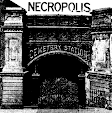ON THE ELEVENTH NIGHT OF HALLOWEEN … I watched another sci fi horror film, Coherence (2013) by James Ward Byrkit. Instead of time travel, this one fuses psychological horror thrills with parallel universe shenanigans.
A comet passes over a neighborhood in LA where a group of actors, lawyers, and other professionals are having a dinner party in a comfortably middle class home. Somehow, for some reason, the comet targets just this residence, along with a stretch of road in front of it, for a cosmic event. A dark field is created that encircles the area such that anyone passing through it travels to a parallel universe’s version of the same area. When the power goes out, members of the dinner party start venturing out and inadvertently walking through the field. The problem is that the other universes’ versions of the same people are so similar that they wind up in the wrong reality without knowing it. The characters discover this after it’s too late by noticing small deviations in each other’s memories of random incidents during the night. This causes them to react with horror toward people revealed to be in fact doppelgängers of their partners and friends. By the end of the night, deadly violence erupts between various cross-universal iterations.
There is an attempt to explain all this at one point through an analogy to quantum decoherence. This occurs when a subatomic system of mutually exclusive states does not remain isolated. Here the characters crossing over into parallel universes are supposed to be causing stability in all the houses to collapse. But this is only an analogy, since what is happening here can only be described as space magic—this is not how anything actually works in quantum physics.
In any case, Coherence is surprisingly well-done given that it was filmed on a micro-budget over the course of five nights, using handheld cameras. Byrkit was able to achieve this by supplying the actors with character and scene notes instead of full scripts and having them improvise everything, such that the story reveals from other characters came as actual surprises. This makes every scene highly naturalistic and keeps the drama engaging throughout. Ultimately, though, the story is much less clever and impactful than Triangle’s. It loses steam as soon as we realize that the characters have no hope of setting things back to how they were, and that it doesn’t really matter anyway, since the parallel universes are so similar. One character’s decision to just stay put and relax until the comet passes turns out to be the best option.
“This whole night we’ve been worrying, what if there’s some dark version of us out there, somewhere. But what if we’re the dark version,” a character played by Nicholas Brendon (Xander on Buffy the Vampire Slayer) muses despairingly at one point, to segue to our TWISTED TWINS & DUPLICITOUS DOPPELGÄNGERS theme. In both Triangle and Coherence, doppelgängers created through spooky physics inspire an existential panic that soon leads to murder. Coherence makes this conflict between unnatural twins material by having chaotic electromagnetic phenomena occur when a person comes into contact with her alternate self. Perhaps we can say this represents our fear and loathing of another person truly stealing our identity and place in the present. But our jealousy toward a version of us that is better off than us, due to a choice we could have made but didn’t, might just as easily inspire us to become the evil twin determined to take over the other’s life.

.png)
No comments:
Post a Comment